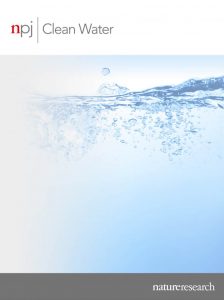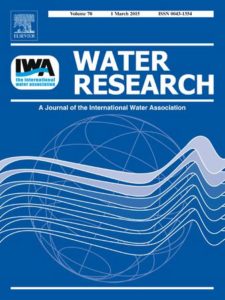Project
Last Updated on November 16, 2022
The Humanitarian Water Lab find ways to get safe, healthy water to vulnerable people in humanitarian crises and resource-constrained settings around the world. We work with people affected by crises and frontline responders to identify critical gaps in knowledge and practice wherever water intersects with human health. We bring together people with the right kinds of expertise and experience to catalyze transdisciplinary research; design, test, and refine solutions, and translate research to change real-world practice, all with the aim of helping to improve health, well-being, and dignity of vulnerable people. The Lab has three core areas of activity:
- Critical problem-solving research on pressing water and health challenges;
- Training and professional development on water, sanitation, and hygiene (WASH) in emergencies; and
- Convening international events to advance the humanitarian water engineering research agenda.
Selected Research Initiatives
- Safe Water Optimization Tool: Advanced water quality data analytics for ensuring water safety and protecting public health in humanitarian emergencies: https://www.safeh2o.app/
- Chemical water quality and potential health effects for children with severe acute malnutrition: e.g., https://f1000research.com/posters/8-603
- Sub-chronic health risks for vulnerable populations due to disinfection by-products in water systems in Canada and humanitarian and LMIC settings (new)
- Linking water quality, microbiological indicators, and epidemiological data using machine learning to create predictive waterborne disease risk management tools (new)
Selected Training & Professional Development Initiatives
- Humanitarian Water Engineering Intensive Course: https://www.yorku.ca/dighr/project/hwe/
Selected Events Initiatives:
- Emergency Data Science—Taking Advantage of the Data Flood 2018: An international workshop on building humanitarian decision-making tools in the age of big data: https://emergencydatascience.org/
- Is Humanitarian Water Safe? Pt. II (new): A ten-year follow-up to the 2011 Is Humanitarian Water Safe to Drink? Event convened by Médecins Sans Frontières: https://www.msf-crash.org/en/publications/medicine-and-public-health/humanitarian-water-safe-drink
Selected Research Outputs

De Santi, M., U. T. Khan, M. Arnold, J. Fesselet, and S. I. Ali (2021). ‘Forecasting point-of-consumption chlorine residual in refugee settlements using ensembles of artificial neural networks,’ npj Clean Water, 4 (35). doi: https://doi.org/10.1038/s41545-021-00125-2

Ali, S. I., S. S. Ali, and J. Fesselet (2021). ‘Modelling post-distribution chlorine decay in refugee camps: Evidence-based guidance for water chlorination in humanitarian emergencies,’ Water Research, 189(116642). doi: https://doi.org/10.1016/j.watres.2020.116642.

“Development of a machine-learning enabled Safe Water Optimization Tool for humanitarian response” Presentation at the 2020 Médecins Sans Frontières Scientific Days Conference, May 13-14, 2020: https://www.youtube.com/watch?v=n0jl8-JP0pk
Lab Leadership
Primary Investigator: Syed Imran Ali, Ph.D., Research Fellow, Dahdaleh Institute for Global Health Research
Faculty Advisor: Prof. James Orbinski, O.C., M.A., M.Sc., M.D., Director, Dahdaleh Institute for Global Health Research
Themes | Global Health & Humanitarianism |
Status | |
Related Work |
N/A
|
Updates | |
People |
Syed Imran Ali, Research Fellow, Global Health and Humanitarianism Active
James Brown, Associate Course Director, Humanitarian Water Engineering; Technical Advisor, Safe Water Optimization Tool Active |
You may also be interested in...
York U’s state-of-the-art emergency and disaster simulation lab with Emergency Operations Centre a multifunctional first
Originally published by News@York (3 July 2024) The launch today of the Victor Phillip Dahdaleh Advanced Disaster, Emergency and Rapid Response Simulation (ADERSIM) Lab and Emergency Operations Centre is thanks to some $3.5M in private ...Read more about this Post
York U health researcher tackles TB stigma through partnership in India
Originally published by YFile (26 October 2023) By Corey Allen, senior manager, research communications As a leading international teaching and research university, a key focus at York is global health research, particularly on pressing issues facing the ...Read more about this Post
Recap — Climate Distress and Healing Through Earth-Based Practices
On April 18, Dahdaleh senior fellow Harvey Skinner and community fellow Susan Harris returned to the Dahdaleh Institute for an interactive seminar that discussed the impacts of climate distress, defined as ‘mental and emotional distress ...Read more about this Post
